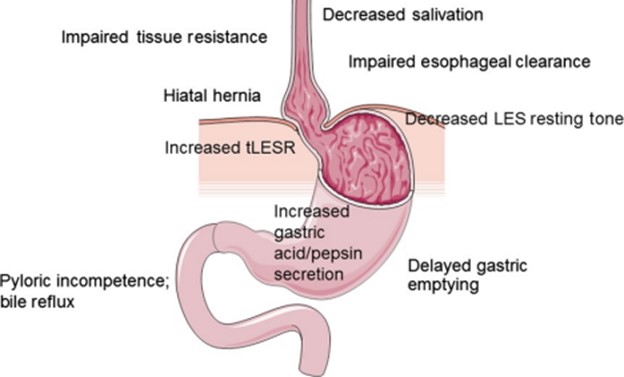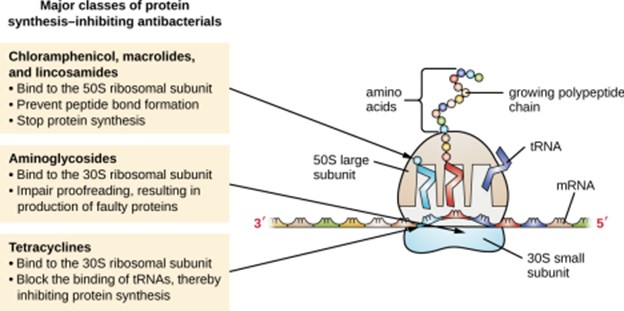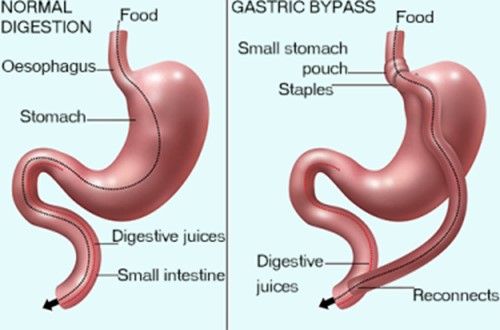The nurse is planning to teach the patient with gastroesophageal reflux disease (GERD) about foods or beverages that decrease lower esophageal sphincter (LES) pressure. What should be included in this list (select all that apply)?
Alcohol
Chocolate
Peppermint
Citrus fruits
Cola sodas
Fatty foods
Correct Answer : A,B,C,D,E,F
1. Alcohol: Alcohol can relax the LES, leading to increased reflux symptoms. 2. Chocolate: Chocolate contains compounds that can relax the LES and contribute to reflux symptoms.
3. Peppermint: Peppermint, including peppermint oil and peppermint-flavored foods, can relax the LES and worsen reflux symptoms.
4. Citrus fruits: Citrus fruits and juices, such as oranges, grapefruits, and lemons, are acidic and can irritate the esophagus, exacerbating GERD symptoms.
5. Cola sodas: Cola sodas, including both regular and diet varieties, can contribute to reflux symptoms due to their carbonation and acidic content.
6. Fatty foods: High-fat foods, such as fried foods, fatty meats, and full-fat dairy products, can delay stomach emptying and increase pressure on the LES, leading to reflux.

Nursing Test Bank
Naxlex Comprehensive Predictor Exams
Related Questions
Correct Answer is {"dropdown-group-1":"A","dropdown-group-2":"B"}
Explanation
Aminoglycosides work by binding to the 30S subunit; this binding interferes with the bacterial ribosome's ability to synthesize proteins. By inhibiting protein synthesis, aminoglycosides disrupt bacterial growth and can lead to bacterial cell death.

Correct Answer is ["A","C","D"]
Explanation
Each of your meals should contain about 10 tablespoons of food: After gastric bypass surgery, the stomach's size is reduced, and the patient's capacity to consume large quantities of food is limited. It is important to educate the patient about appropriate portion sizes to avoid overeating and potential complications.
Be certain to stay hydrated by drinking water: Hydration is crucial after gastric bypass surgery. Patients should be advised to drink enough water throughout the day to prevent dehydration and ensure proper bodily function.
Solid food can be introduced back into the diet in a week: Following gastric bypass surgery, the diet is initially limited to liquid and pureed foods. Gradually, solid foods can be reintroduced into the diet over time, typically after a week or as directed by the surgeon. This information is important for the patient to understand the progression of their diet post-surgery. You are likely to have little urine output for the first few weeks: This statement is not true and may cause unnecessary concern for the patient. Urine output should not be affected by gastric bypass surgery unless there are other complications.
Report any back, shoulder, or abdominal pain to the surgeon: While it is important to report any significant pain or discomfort to the surgeon, including back, shoulder, or abdominal pain, this is not specific to discharge teaching for gastric bypass surgery. Pain management and reporting should be covered during the post-operative care instructions, but it is not limited to discharge teaching alone.

Whether you are a student looking to ace your exams or a practicing nurse seeking to enhance your expertise , our nursing education contents will empower you with the confidence and competence to make a difference in the lives of patients and become a respected leader in the healthcare field.
Visit Naxlex, invest in your future and unlock endless possibilities with our unparalleled nursing education contents today
Report Wrong Answer on the Current Question
Do you disagree with the answer? If yes, what is your expected answer? Explain.
Kindly be descriptive with the issue you are facing.
